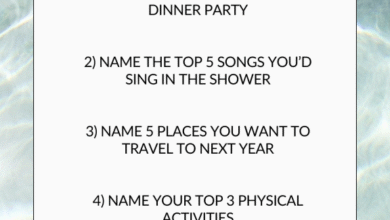What Does “Bate” Actually Mean?
The word “bate” is one of those rare gems in the English language that seems simple but carries multiple meanings depending on the context. Derived from Old French batre and Latin battuere (meaning “to beat”), “bate” has historically been used as a verb that means to lessen, diminish, or restrain. For example, the phrase “with bat ed breath” (popularized by Shakespeare) literally means holding or lessening one’s breath in anticipation.
In another context, especially in falconry, “to bate” means for a bird to beat its wings and try to escape from the perch — usually when it’s anxious or excited. This more literal, physical definition creates a rich metaphorical playground for writers, poets, and everyday users of language.
In modern usage, the word has become rare, mostly surviving through idioms and specialized terms. But that doesn’t mean it’s irrelevant. In fact, its roots and evolution offer a fascinating look at the intersection of linguistics, literature, and culture.
The Phrase “With Bated Breath”: A Linguistic Legacy
If you’ve heard the phrase “with ba ted breath,” you’ve encountered one of the most enduring uses of the word “bate.” This expression means to wait anxiously or in suspense for something to happen. For example, “She waited with ba ted breath for the exam results.” It paints a vivid image of someone literally holding their breath in anticipation — a feeling most of us can relate to.
What’s really interesting is how often this phrase is miswritten as “baited breath.” While the latter might conjure up a strange image of someone with worms or fishhooks in their mouth, the correct form is “bated,” a short form of “aba ted,” which means “to lessen or reduce.” So, “ba ted breath” refers to someone reducing or holding their breath, not enticing someone with fish bait.
Shakespeare is largely credited with popularizing the phrase. In The Merchant of Venice, the character Shylock says: “Shall I bend low and in a bondman’s key, / With bated breath and whispering humbleness…” That line alone has helped preserve the word in our collective vocabulary.
Bate in Falconry: The Original Physical Struggle

In falconry, to “bate” refers to a bird of prey trying to fly off its handler’s glove or perch, typically flapping and struggling with its wings. This use is older than the idiomatic expressions we know today, and it connects to the idea of restraint and tension — a key aspect of the bird-handler relationship.
When a bird bates, it’s often a sign of distress, impatience, or excitement. Falconers train their birds to become accustomed to stimuli that may cause them to ba te. The motion is sudden, sometimes violent, and is deeply tied to the predator’s instinctive desire to fly, hunt, or escape.
This term isn’t just a technicality in falconry — it’s been used metaphorically in literature and everyday speech. Think about someone “bating” against their situation, trying to escape the constraints of society or their current predicament. It adds a poetic layer to the act of resistance, something that resonates even beyond the world of birds and falconers.
Misuse and Misspelling: “Baited” vs. “Bated”
One of the most common language slip-ups involving “bate” is confusing it with “bait.” They sound identical but have entirely different meanings and etymologies. “Bait” usually refers to food or something used to lure (like in fishing or traps), while “ba te” is about restraining or diminishing.
You’ll often see people write “baited breath” on social media or even in published articles, which is technically incorrect. It’s a small but significant mistake — especially for grammar enthusiasts or professional writers. That said, language evolves, and common usage can sometimes redefine what’s considered “correct.” But for now, if you want to sound like you know what you’re talking about, go with “bated.”
There’s also the mistaken use of “bate” when people mean “deba te” or “reba te.” These words might sound similar but don’t share the same meanings. While auto-correct and grammar-check tools can catch these errors, understanding the difference at a root level is a mark of truly knowing your words.
Cultural References and Pop Culture Moments

Though the word “bate” isn’t a frequent flyer in modern conversation, it does make appearances in literature, movies, and internet culture. It survives mostly through idioms and specialized references, but each occurrence adds to its cultural footprint.
In literature, Shakespeare stands out as the torchbearer of “bated breath.” But many modern authors, from fantasy writers to contemporary novelists, continue to use the word when they want to inject a certain old-world charm or poetic nuance.
Online, “bated breath” is often used in blog posts, tweets, and memes — sometimes correctly, sometimes not. There’s even a kind of niche pride among grammar aficionados who can spot the incorrect “baited breath” from a mile away.
It also pops up in gaming and storytelling forums where suspense and drama are central to the dialogue. Characters waiting on life-changing outcomes, players anticipating a game reveal, or audiences holding their breath during a cliffhanger — all these scenarios are ripe for the phrase.
Modern Applications and Why It Still Matters
So, why should anyone care about a word like “bate” in today’s world of emojis, acronyms, and text slang? The answer is pretty simple: language is culture. Knowing words like “bate” enriches your vocabulary and allows you to communicate with greater depth and precision. Plus, there’s something satisfying about using a less common word correctly — like having a secret weapon in your linguistic toolbox.
Writers, in particular, benefit from knowing when and how to use words like “bate.” Whether you’re working on a novel, a poem, or even a dramatic blog post, slipping in a phrase like “with bated breath” adds atmosphere and elegance.
Even in business writing, where concise language is key, words like “bate” can offer nuance when used sparingly. Imagine a press release or marketing email that builds suspense for an announcement — that’s a perfect setting for “bated breath.”
And for educators and language lovers, teaching the origins and usage of such words connects students with the history and evolution of English, keeping the richness of the language alive.
Final Thoughts: Small Word, Big Impact
“Bate” may be a small, rarely used word, but it carries with it layers of meaning, history, and expressive power. From Shakespeare’s verses to the disciplined world of falconry, and from grammar snobs correcting online slip-ups to novelists looking for the perfect touch of suspense — “bate” finds ways to stay relevant.
Understanding this word is more than just a vocabulary win — it’s a window into the elegance of the English language. So the next time you’re waiting nervously for something important, remember: you’re doing it with bated breath, not baited — unless, of course, you’ve swallowed a worm.



